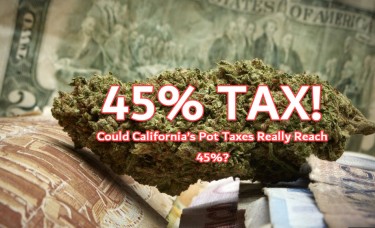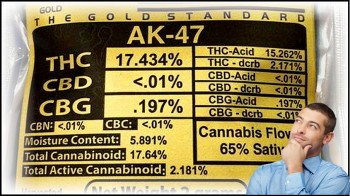
If it's your first or nth time visiting a dispensary, you will pay tax on every cannabis product or delivery item you bought. On each cannabis product you paid for, you pay at least 20% in taxes. This could go as high as 40%, depending on the product and state you live in.
The first time I purchased cannabis in a dispensary, I was shocked at the total price rung at the point of sale. Further investigation showed that customers pay a percentage of excise tax, local business tax, and state sales tax. Every canna-legal state generates multiple types of revenues on cannabis transactions. Most dispensaries have POS software that makes it easy for customers to understand their cumulative and post-tax fees on each transaction.
Cannabis Taxes in the Legal States
Taxes are often added as a single percent to subtotal in traditional retail. For instance, the final price would be $33+ $2.98 = $35.98 if the item costs $35 and the sales tax is 8.5%. It goes without saying that cannabis has more complicated and expensive taxation. You can anticipate being charged one or more forms of taxes at your favorite dispensary, depending on local rules.
There are three common types of cannabis taxes.
Sales Tax
The customary tax we are all accustomed to paying while making purchases is the sales tax. State-by-state and city-by-city variations in the tax rate typically range from 4 to 17%. For instance, the rate in Oregon is 17%, whereas Montana's medicinal marijuana sales tax is 4%. With a current medical marijuana identification card, medical patients in places like California and Maryland can avoid this charge (MMID).
Sales tax is included in the state's general fund and is frequently utilized for municipal transportation, health programs, public safety, and education.
Excise Tax
The excise tax is a type of business tax that is expressly applied to cannabis goods that are sold to consumers. In California, if a retailer buys things in bulk, the item's price frequently includes the state excise tax of 15%. The excise tax may be applied to the client's receipt or incorporated in the item's fee if a store is vertically integrated from its cultivation and/or distribution.
Similar to other states, Nevada levies a 15% tax on cannabis purchases and a 10% excise tax on retail sales. Additionally, Colorado imposes a 15% excise tax on the average market rate (AMR) or contract price of cannabis for sale. Each retail marijuana facility is required to file one marijuana excise tax return.
The state-collected excise tax, which must be included in all legal cannabis sales and is utilized for projects like cannabis research, substance addiction programs, mental health care, and environmental protection, is a quarterly revenue source for the state.
Local Business Tax
Local governments decide on local taxes, municipal taxes, or post-tax fees. They have the option of applying or not applying this tax. The municipal business tax may not apply to medical patients, or they may pay a lower rate than adult-use consumers.
Given all these possible factors, overall taxation can differ significantly even within the same state. In California, for instance, Oakland, San Diego, San Francisco, and Los Angeles all have varying tax rates.
Cumulative Tax Calculation
Retailers must collect various taxes, and the order in which they are computed matters to avoid charging the incorrect amount.
The majority of states, including Massachusetts, Colorado, and Oregon, compare all taxes to the subtotal. Others, like California and Michigan, base each tax on the gross receipt plus any other levies that have already been paid. These layered calculations are referred to as "cumulative taxes."
Each state has an approved percentage for each type of tax. For example, if your state's excise tax is pegged at 15%, sales tax at 7.8%, and local business tax at 5%. All these are added to your product's subtotal.
Let's assume your subtotal is $30.
The cumulative tax will equal $38.34.
That is 30 + (30x7.8%) + (30x5%) + (30x15%)
Note that this is just an example. The actual amount would vary depending on your state's tax laws.
If you own a dispensary, here are some practices to ensure your enterprise complies with cannabis tax laws.
Understand your local tax laws
Calculating taxes on cannabis sales can be challenging. Be sure to check your state and local legislation before automating tax computations at your dispensary. Consult your accountant or seek legal counsel to verify compliance and accuracy since you don't want to find yourself in a situation where you've been collecting taxes incorrectly.
Keep your records updated
Retailers of cannabis are required by law to maintain financial records proving the accuracy of sales. You can keep track of inventory, record activity for each sale transaction, and keep a record of each customer who comes into your dispensary by using a point-of-sale dispensary system designed exclusively for the cannabis industry.
In the event of an audit, you will be able to prove precisely where your profits come from and where your items are from seed to sale if you have a paper trail of compliance created by documenting everything.
Keep your operations transparent
By properly writing tax information on your receipts, you may help your customers understand exactly what taxes are being charged. By doing this, pricing complaints will be reduced, and it will be clear how their overall cost was determined.
To be able to effectively respond to consumer inquiries and impart knowledge about how cannabis tax revenue is used to enhance local communities, educate your team on each sort of tax.
Last words
If you're a customer, it is also advisable for you to be well versed in your state's tax legislation. This way, you know if you're being charged rightly or not.
Customers and business owners must be willing to take a stand against excessive cannabis taxation. Many states have little or no tax incentives for cannabis purchases, whereas other industries enjoy these incentives. If excessive cannabis taxation isn't curbed, many consumers will continue patronizing black market operators. Additionally, if the tax rates continue rising, many small cannabis business owners will be pushed out of business.







